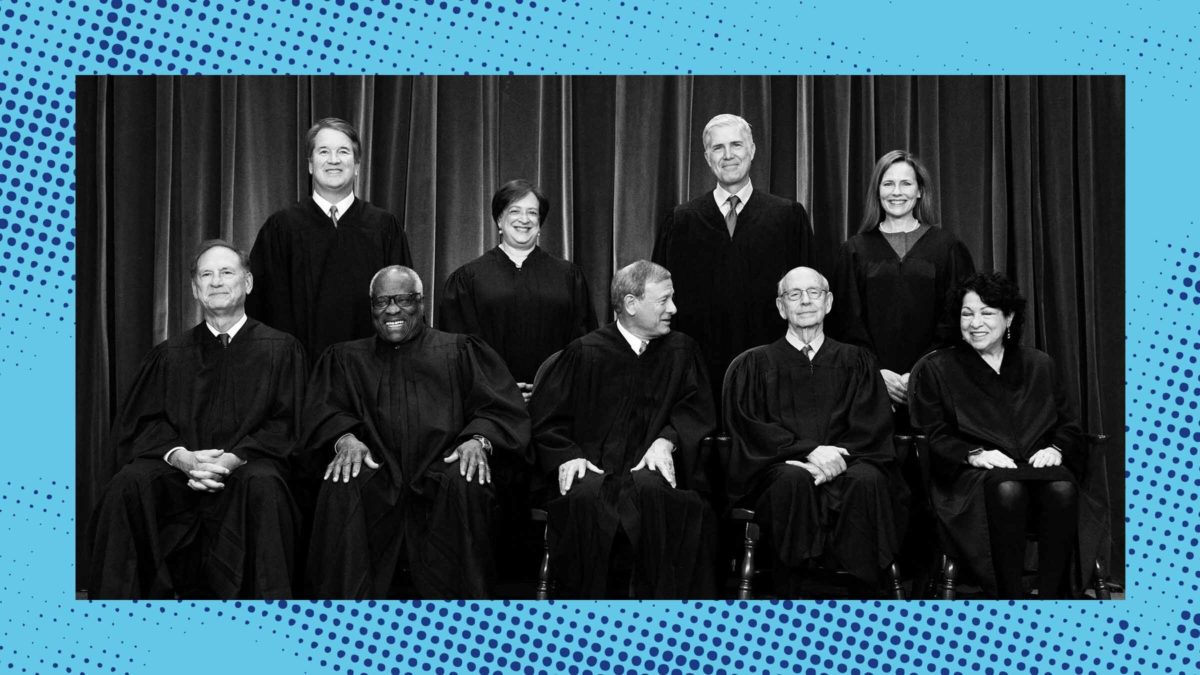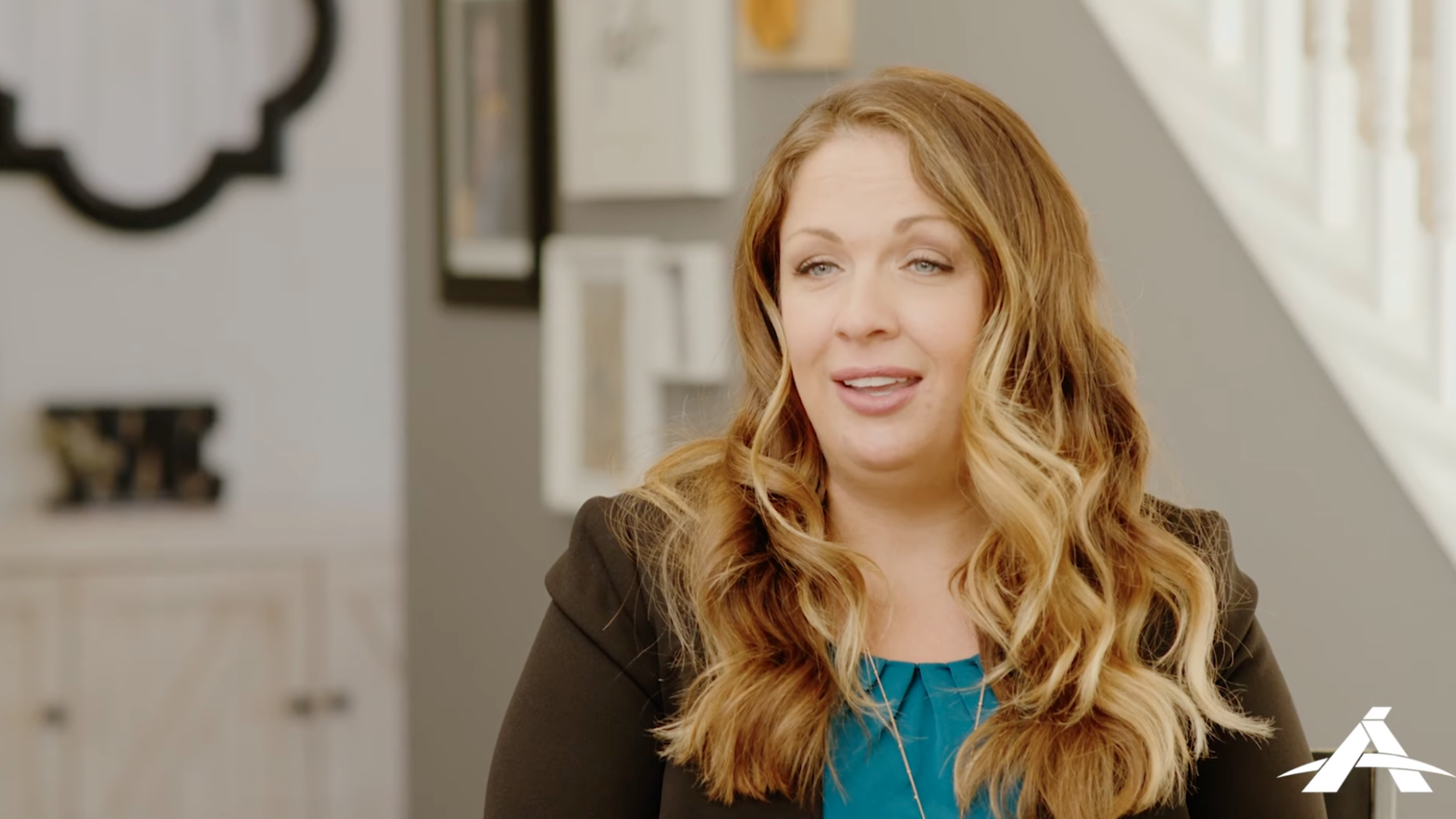Editor’s note: This month, we’ll be taking a closer look at some of the most consequential cases the Supreme Court—the most conservative Supreme Court in a century—will decide in its upcoming term. This week: 303 Creative LLC v. Elenis, a case about whether people are free to violate antidiscrimination laws in the name of…artistic expression?
Lorie Smith is a graphic designer in Colorado who suffers from a severe case of Main Character Syndrome. For many years, Smith worked in corporate design and marketing. But, as her lawyers put it on a donation page to which I am absolutely not going to link, “Something was missing: freedom.” So Smith flew the corporate nest and founded 303 Creative LLC, compelled by the lofty goal of making custom graphics and website design that would, as she told the U.S. Supreme Court, “bring glory to God.”
All would be well and dandy with this plan, except for one problem: Smith wants to expand her portfolio to build wedding web sites, citing a desire to “publicly proclaim and celebrate His design for marriage as a life-long union between one man and one woman.” As her language suggests, though, Smith does not want to make web sites for same-sex couples and has sued for the right to refuse to do so, convinced that the state of Colorado will otherwise take her down in a blaze of civil rights law enforcement.
In Colorado, state law protects against discrimination based on sexual orientation in “public accommodations,” which includes businesses like Lori’s: As the Tenth Circuit Court of Appeals put it, the state has a compelling interest in protecting the “dignity” and “material interests” of marginalized people who want to access the marketplace in peace. Yet Smith claims that because she can’t refuse queer clientele without fear of a legal challenge, the government is effectively “compelling” speech that contradicts her religious beliefs.
“There’s a Colorado law that prevents me from continuing with my work,” says Lorie Smith, describing a Colorado law that bars discrimination in public accommodations.
Colorado’s antidiscrimination law already includes an exemption for churches and religious organizations. But Smith is asking the Supreme Court to expand this exemption to protect any business owner who wants to be homophobic from legal consequences so long as they assert impositions on their creative processes. Oral argument in this case will take place sometime this fall.
It is important to understand that Smith’s purported problem is, at this point, entirely hypothetical. By her own admission, she has yet to make even one wedding website. (Her strongest evidence that a conflict exists is an email she received from someone named “Stewart,” who is getting married to “Mike” and is interested in “some design work” that “might also stretch to a website.”) Apparently, the mere prospect of scary Big Government telling her she can’t be homophobic is crushing her entrepreneurial spirit.
This is not the first time the Court has taken up a case with dubious facts in the name of Christian supremacy. Last term, the Court decided Kennedy v. Bremerton School District, a case about a high school football coach who insisted on his right to conduct Friday Night Lights-style prayers with players at the end of games. When the district told him to stop, he took his gripes all the way to the Supreme Court, where the conservative justices found in his favor. To do so, they rewrote the facts of the case, transforming what had become a chaotic public spectacle into a quiet, private prayer that required urgent judicial intervention.
This is also not the first time homophobic Colorado business owners have ended up before the Supreme Court. In 2018’s Masterpiece Cakeshop v. Colorado Civil Rights Commission, the justices found that members of the commission had demonstrated “clear and impermissible hostility” to the religious beliefs of a baker who refused to make wedding cakes for same-sex couples. Although Justice Anthony Kennedy’s opinion was largely limited to the particular facts of the case, the upshot is that it weakened antidiscrimination law in the name of religious freedom.
In an essay for the National Review, Smith frames her case as picking up where Masterpiece Cakeshop left off, extending its religious freedom rationale to her “speech” as an artist. But Smith’s fears about “self-censorship” are hard to square with the reality of how enforcement works. As the state notes in its brief, since 2016, of the 47 complaints filed with the Commission based on sexual orientation, the state has found probable cause for discrimination only twice. And although though the state can bring discrimination charges on its own initiative, it has never done so.
The impact of the Court’s decision in 303 Creative could extend far beyond Colorado’s borders. The state’s civil rights law largely tracks Title VII of the federal Civil Rights Act of 1964, which protects against discrimination based on race, color, national origin, religion, and sexual orientation and gender identity. If Smith successfully creates an unwieldy “artist” exception to Colorado’s law, conservative lawyers will likely set their sights on expanding it to the federal context, too.
A basic tenet of the U.S. legal system is that judges are supposed to resolve actual cases or controversies, not weigh in on problems that do not yet exist. Yet the Court’s conservatives have agreed to intervene in this matter, allowing them to issue what is essentially a policy advisory that would expand the rights of Christians at the expense of the rights of everyone else. Soon, Lorie Smith might have nothing to fear from the Colorado Civil Rights Commission, because the justices can render it powerless.


